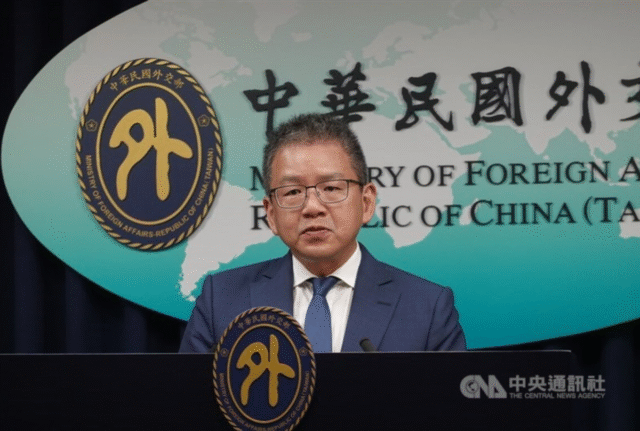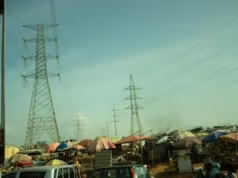In a bold move reflecting rising geopolitical tension, Taiwan has imposed stricter export restrictions on semiconductor chips to South Africa. The new requirement: pre-approval for many chip exports. The decision comes after diplomatic friction between Pretoria and Taipei culminated in South Africa downgrading Taiwan’s diplomatic missions. The Taiwanese government accused South Africa of ceding to Chinese influence, especially following a high-profile visit by South Africa’s Vice President to Beijing. In response, Taiwan seems to have said plainly: “You can’t have our chips anymore.”
Though the move sounds dramatic, experts caution that the impact on actual products on South African shelves may be more symbolic than immediately disruptive. Why? Because many devices—phones, laptops, graphics cards—already come into South Africa with the chips already embedded, usually via final assembly elsewhere. Cutting off chip exports now may be more about leverage and signalling than halting supply lines wholesale.
Table of Contents

What’s going on: Diplomacy, pressure, and national security
The saga began when South Africa announced plans to downgrade or relocate Taiwan’s diplomatic missions in Pretoria and Cape Town. Taiwanese officials saw this as a direct blow to their diplomatic presence. Coupled with Pretoria’s increasingly warm posture toward Beijing, the Taiwanese government declared these actions undermined their sovereignty and national security.
Taiwan responded by tightening its chip export policy. These chips aren’t trivial: they power nearly everything—from smartphones and routers to vehicles and advanced computing systems. Much of this advanced semiconductor manufacturing is handled by Taiwan Semiconductor Manufacturing Company (TSMC), one of the world’s key producers. With pre-export approvals now required, Taiwan can control the flow of chips more tightly than before.
But as many analysts point out, once chips are embedded into electronic devices, Taiwan’s ability to stop their distribution becomes limited. The restriction is most effective upstream in the supply chain. Downstream, devices already assembled or in transit are less immediately affected.

Potential ripple effects for South Africa and global tech
While shelves may remain mostly stocked in the short term, this policy shift raises several concerns for South Africa and beyond:
- Supply chain vulnerabilities: Should tensions escalate, South Africa might face delays, higher costs or restriction of access for certain advanced chips—especially those not already built into finished products.
- Cost inflation: With tighter control, importers may incur higher costs for obtaining pre-approval or pay premiums for sourcing chips indirectly through alternative routes. That could eventually drive up the prices of electronics for consumers.
- Innovation and investment risk: Firms in South Africa that rely on cutting-edge hardware—artificial intelligence, data centres, advanced manufacturing—may see the policy as a risk factor. Uncertainty about supply could discourage investment in these sectors.
- Diplomatic fallout and alignment shifts: This move could push South Africa to more explicitly choose sides between Beijing and Taipei—or more broadly, between China and the democratic bloc in which Taiwan aligns. In international trade and tech diplomacy, reputational risks loom large.
However, it’s important to note that this is less about empty shelves, initially, than Taiwanese power projection. Taiwan’s strategy may primarily be signalling: we will protect our interests, even if that means closing off access to critical tech components. It’s a clear reminder of how geopolitics increasingly intersects with semiconductors—arguably the most strategically vital component of modern tech.
Bigger picture: Chips, sovereignty, and global tech friction
The Taiwan-South Africa chip dispute is one node in a global web of tech sovereignty debates. Across the world, countries are waking up to how essential semiconductors are—not just for consumer devices, but for defence, national infrastructure, digital sovereignty, and influence.
In recent years:
- Governments everywhere have begun to treat chips like critical infrastructure. Export laws, investment screening, supply chain localisation, and chip sovereignty—terms once confined to policy papers—have become central in diplomatic discourse.
- China vs. Taiwan vs. the United States dynamics remain central. Taiwan holds manufacturing capacity and rare-material know-how. The U.S. increasingly seeks more domestic or allied chip production. China is pushing forward its own semiconductor ambitions.
- Markets are also uneasy. Global supply chain disruptions during pandemics, shipping delays, and now diplomatic disruptions are causing companies to diversify sources, build buffer inventories, and revisit reliance on any single supplier.
For South Africa, the question now is how to respond. Will Pretoria attempt a diplomatic compromise to restore chip exports? Will it invest more in home-grown semiconductor capacity or seek alternate partners? And how will the private sector adapt its strategies—either to avoid being caught in the crossfire, or to leverage the situation?

Conclusion
The message from Taiwan is unmistakable: “You can’t have our chips anymore.” What started as diplomatic friction has quickly escalated into a tech supply declaration. While the immediate impacts in consumer electronics might be muted, the seeds of a much larger recalibration have been sown. South Africa may be just the beginning. In a world increasingly governed by tech dependencies, chips are the new front lines. Companies, governments, and citizens alike will have to ask: how secure is the chain that powers our devices? And what price are we willing to pay for sovereignty?
Join Our Social Media Channels:
WhatsApp: NaijaEyes
Facebook: NaijaEyes
Twitter: NaijaEyes
Instagram: NaijaEyes
TikTok: NaijaEyes





